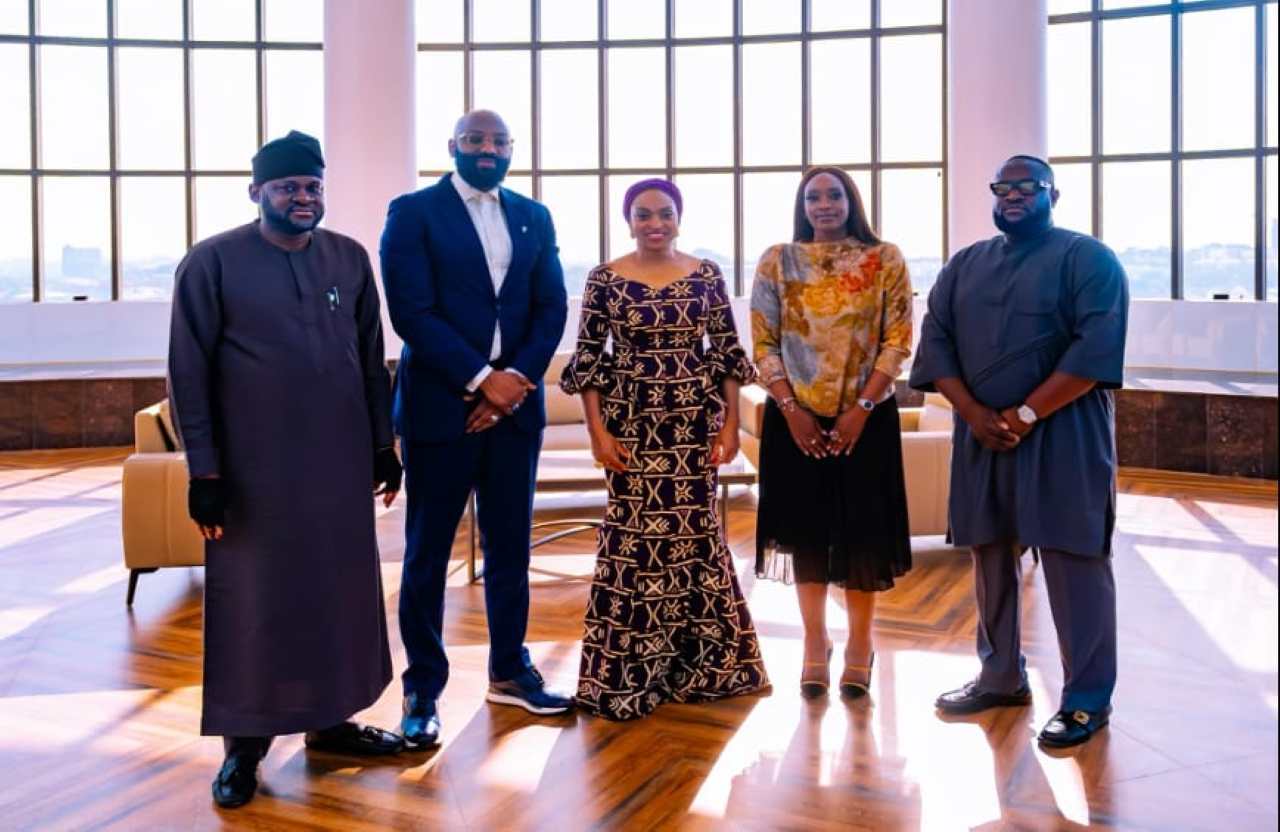
As part of efforts aimed at ensuring productive use of the Internet of Things (IoTs), and cyber resilience in Nigeria, the convener, Abuja Dialogue on Cybersecurity and Co-Chair of Ngalasi Centre for Cohesion and Development, Uche Igwe has advocated for cybersecurity techniques for Nigerian youth rather than engaging in cybercrime.
Igwe while speaking in Abuja on Tuesday at Abuja Dialogue on Cybersecurity stated that the stakeholders’ engagement is apt and timely considering the high rate of cybercrime in Nigeria.
He explained that cybercrime is an abuse of technology but noted that the awareness of the use of cybersecurity among youths will get them more engaged professionally rather than engage in cyber crime.
“Basically we’re here to speak to each other, engage and build partnership on a very critical issue of cyber security in the country. As you know, every world is a victim of one cyber crime or another, and I think it is important we provide a platform like this so that we can talk with each other.
“Cyber crime, of course, is an abuse of technology, but cyber security is that responsive and responsible way of utilizing technology for common good. And I must also emphasize that it is important for us to begin to think about career pathways for our young people.
“One of the things we intend to achieve from this exercise is to create awareness for our young people to understand that rather than engage in cyber crime, they can train themselves, get certified, and get employed doing cyber security.”
Meanwhile, Igwe maintained that across the world, demand for cyber security professionals continue to increase, hence their vision as Abuja Dialogue of Cyber Security is to ensure that Nigeria becomes a net exporter of cyber security professionals in Africa and in the world.
The Assistant Director Admin, Nigeria Police Force National Cybercrime Centre, Omaka Udodinma cautioned Nigerians on being too swift to click on links without verifying however advised that due diligence and scrutiny should be done to avoid being victim of cybercrime from hackers.
“Someone must ask you to do something before your WhatsApp is hacked. If you see some malicious posts on the Internet on your buildings, a lot of us are too quick to click. Whatever we see on the Internet, we click.
“We want to find out what it says. You wouldn’t know whether it is malicious, whether something has been hidden behind it. And you click, and the next day or the next moment, you check that your account has been hacked.
“Most people will send a number before they go back to read the message, and then it is too late. So what we need is awareness. For groups like this, where awareness will be created, people will be educated on how to remain safe online. That is the essence of why we are gathered here.”
Also speaking, the Executive Secretary, National Human Rights Commission (NHRC), Tony Ojukwu, represented by Halilu Adamu stated that cybersecurity poses significant threats to countries as it is common to hear about cyber attacks and cyberwars also adding that the upsurge in other electronic realities in crime and terrorism as well as other forms of security have also led to increase in internet and data protection and privacy issues.
Ojukwu further explained that the breach and invasion on the right to privacy have usually been seen in investigations and law enforcement related to these crimes stating that these crimes have affected the enjoyment of the rights of citizenry, including access to health facilities, supply of electricity and other legitimate activities.
“This has necessitated the increasing need for governments across the world to put in place laws and other measures to cybersecurity. It is, however, necessary to mention the need to underscore the nexus between cybersecurity as well as other measures and the right to human rights.
“Those cybersecurity measures should not be an affront to the rights of the citizenry that leads to shutdowns or disruption of online services and platforms, including surveillance and censorship in complete departure from the protection guaranteed by regional and international human rights norms and tenets.” He added.
Meanwhile, Ojukwu expressed optimism that the dialogue will provide a platform for collaboration between government agencies, civil society, private sector, and other stakeholders to come up with strategies that will strengthen cyber security measures and guarantee protection of human rights.
The Speaker House of Representatives, Hon. Tajudeen Abbas represented by the House of Representatives Spokesperson, Rep. Akin Rotimi while highlighting cyber attacks in Nigeria disclosed that Africa’s cybercrime market is projected to reach $4.6 billion by 2025, and Nigeria accounts for 34.6% of this share losing approximately $127 billion annually to cybercrime.
Abbas noted that the recent enactment of the National Cybercrime Prevention Amendment Act of 2024 by the National Assembly therefore represents a significant milestone in our fight against cybercrime adding that achieving effective cyber security requires multiple steps to action, with a collaborative and holistic approach to the implementation of these future legislation.
“In the House of Representatives, we recognize the security challenges including cybercrime and the multistate impact it has on the economy and the life of Nigerians.And that is why in our Legislative Agenda, we need to see in what ways there is a length of $3 billion in cybersecurity and the commitments that we have made.
“In our eight-point agenda, which we reviewed when we resumed last year, specifically, Agenda 2 speaks about improving national security and highlights our focus on counterterrorism and counterinsurgency.
“In fact, Agenda 5.2 highlights the intention of the House of Representatives to collaborate with the office of the National Security Advisor to amend the Cybercrime 2015 Act, which we referred to earlier.”
He however stated that to curb the waves of cybercrime in Nigeria, the 10 House has enacted comprehensive data protection legislation, working towards standardizing intelligence tools to enhance compatibility and ease of sharing amongst security agencies while also committed to allocating resources for modern tools to mention a few.
He promised that the 10th Assembly is committed to ensuring all forms of cybersecurity threats to ensure the safety of all Nigerians.
“We are committed to ensuring that we have a voice in the room when key issues like these are being addressed, I think that one of the things that we need to ensure that we realize that we, Nigerian people, are committed to ensuring that all the key outcomes that Nigerians desire, especially when it comes to safety, cyber environment, where our children, national resources, assets and institutions are protected.”






